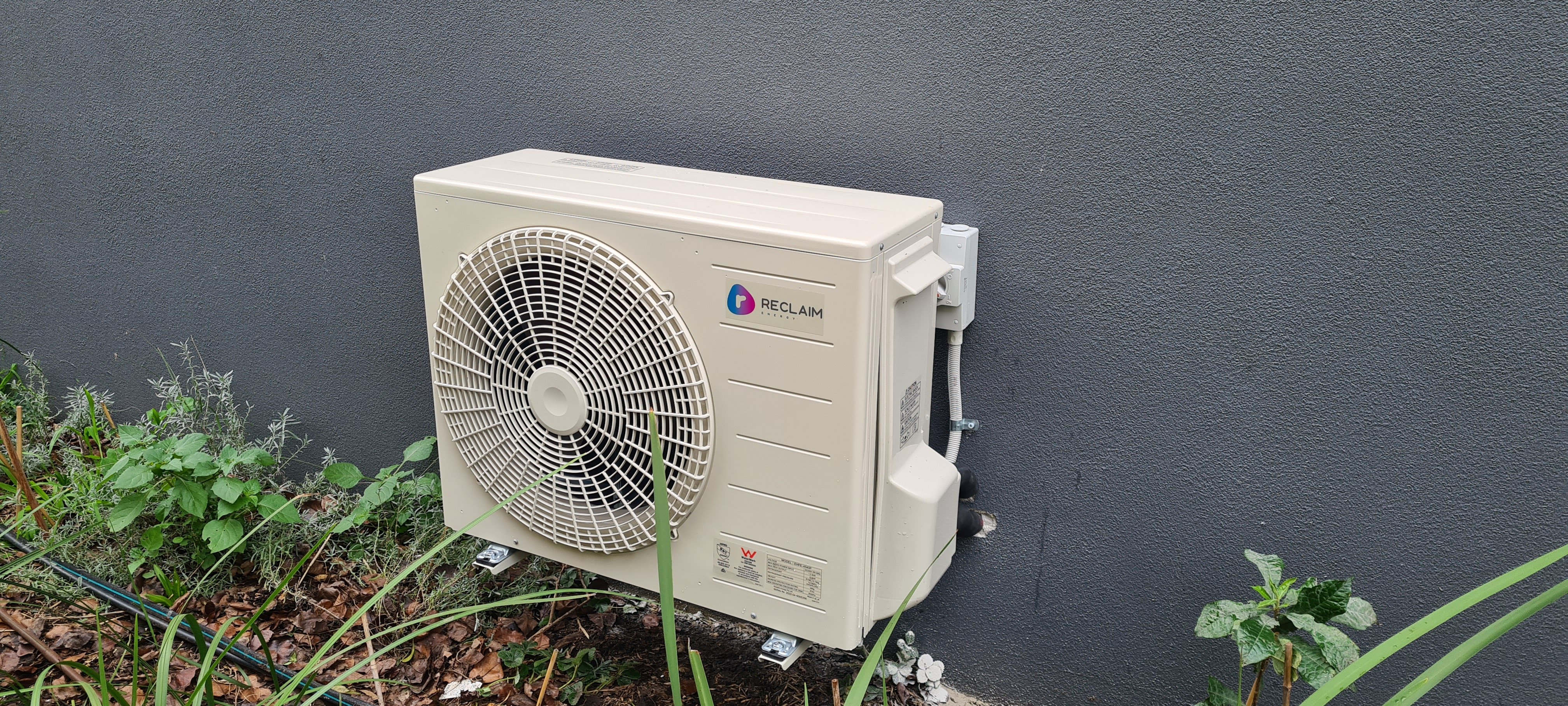At G Store, we encourage people to consider a heat pump as the next step for their hot water system. It can give serious savings, especially compared to an electric storage system – and it can be a key aspect of building an all-electric home.
But we know there’s no use pretending a good heat pump will come cheap. Like any investment, it comes with a cost. Before you spend hard-earned money on anything, you don’t just need to know that it works: you need to know how long it’ll work.
In this article, we take a look at different factors in heat pump reliability, and how much you can expect to pay for a system that lasts.
Will I run out of hot water?
Having reliable access to hot water depends on a few things:
- the size of the tank
- the refill rate
- the operating temperature.
The average person uses around 50L of hot water a day. Those in a colder climate might use more, so you’ll have to consider if you’re an outlier. The standard recommendation is that your hot water storage tank should have capacity for 1.5x your daily use. That means a family of four would be comfortable with a 300L tank, give or take.
But the refill rate plays an important part in that. High refill rate can allow a much larger family to enjoy hot water throughout the day. For example, top-of-the-line heat pumps from Reclaim Energy and Sanden are capable of heating a 315L tank in around three hours. So, a family of six could expect reliable hot water. Lower quality systems can take longer, which can be okay if you have a small household and sufficiently sized tank – but they’re less appropriate for those with higher hot water needs. Keep in mind that some of these systems will run basically all day – while still cheaper than running an electric or gas system, the noise can be annoying, especially if the system is installed near a bedroom.
Operating temperature is another big factor. Heat pumps draw ambient heat from the air and won’t function when it gets too cold. The best heat pumps can operate up to -10°C, which means basically anywhere in Victoria can expect reliable hot water. Some cheaper units will stop working around 5°C. These are typically equipped with an electric booster that’ll take over when the heat pump stops functioning, or when it needs to pump the temperature up to 70°C (necessary for safety reasons) and the compressor can’t handle it alone. That does mean you’ll be using more electricity than a premium heat pump requires – in turn, not reducing your electricity usage as much as you might’ve expected.
Ultimately, what’s important is that you trust your provider is trying to get you the best hot water service, rather than trying to make a quick commission. If you trust them, you know they’ll recommend what you need to ensure reliable hot water.
How long will my heat pump last?
How long your hot water heat pump will keep you saving is, once again, determined by a few different things. Proper maintenance plays a part, but so does the durability of the brand itself.
You should have a professional inspect your heat pump every five years or so to make sure everything is working as it should. A good unit, properly serviced in this way, should last 15-20 years – that’s two decades of savings.
One way to get an idea of how long your system will last is to look at the warranty. Longer warranties indicate the manufacturer is confident that their product will last quite a while, while shorter ones are a warning sign that you might need an early replacement.
For example, Reclaim Energy’s CO2 Heat Pump comes with a warranty of 15 years on their stainless steel tank, 10 for a glass lined tank, and 6 for the unit itself. Those warranties are industry leading, only matched by premium competitor Sanden. If anything goes wrong with those components in that time, you can expect help getting everything working again without having to pay for a full replacement.

Compare that to a more budget system, such as the EcoAlliance Heat Pump. They offer 5 years warranty on the tank and 2 on the compressor. At just a third of the length, you’re left with significantly less protection should something go wrong.
Typically, the EcoAlliance is offered as a free or low-cost upgrade thanks to government rebates. However, since you can only claim the Victorian Government’s heat pump rebate once, any replacement will be more expensive, which might leave you paying much more than expected to get hot water again.
(We don’t mean to single out EcoAlliance too much here – plenty of their low-cost competitors have similar warranties.)
It’s up to you whether you want to take the risk with a cheaper system and hope it lasts you long enough to be worth it, or if you’d like to go with a more expensive option which is much more likely to pay itself off over time.
While the choice is up to you, you should know that G Store chooses not to offer lower-range heat pumps. As a sustainability-focused business, we don’t want to sell anything that’ll end up in landfill a few years down the line. Instead, we focus on highly efficient, premium quality products with long warranties. Plus, we want our customers to get the right system – and in most cases, that’s a higher quality one.
Conclusion
If you choose the right heat pump, you aren’t going to run out of hot water. You’ll need to make sure the tank is properly sized, you have the right refill rate, and the operating temperature is appropriate for where you live – if that’s all handled correctly, you can expect to have reliable hot water whenever you need it (and for much lower ongoing costs than traditional hot water systems).
In terms of longevity, a good quality heat pump can last 15-20 years. When considering how long you’d like your heat pump to last, and how much you’re willing to pay for that durability, you should keep in mind that you only get one Victorian Government rebate, and any replacement will cost more.
To learn more about heat pumps, check out the other pages of our learning centre.

